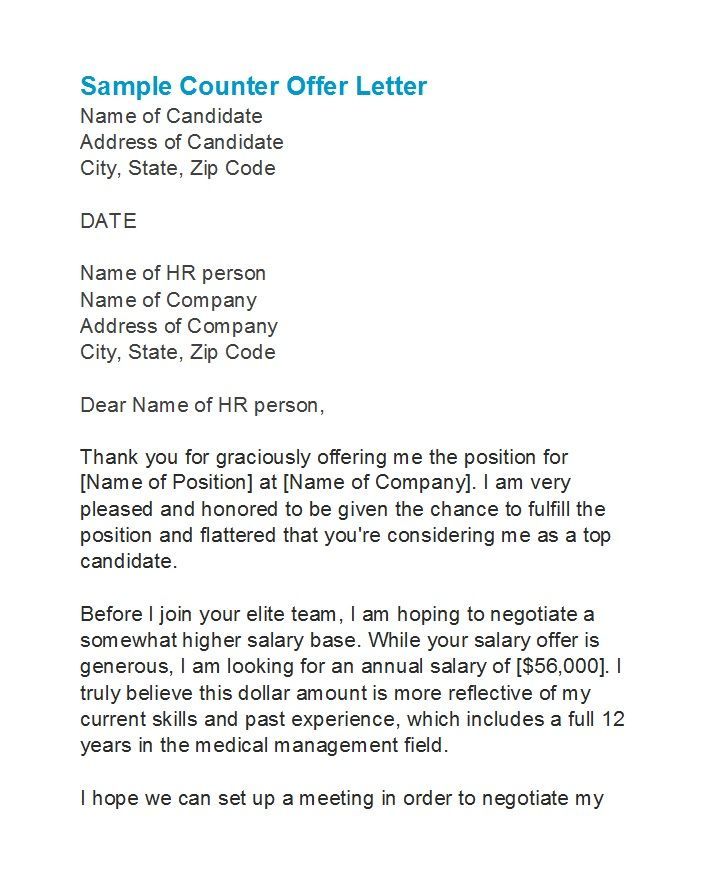Beyond 'Best And Final': Strategies For Job Offer Negotiation

Table of Contents
Understanding Your Worth: Pre-Negotiation Preparation
Before you even enter a salary negotiation, thorough preparation is key. This involves understanding your market value, quantifying your achievements, and defining your non-negotiables.
Researching Salary Benchmarks
Knowing your worth starts with research. Utilize these resources to determine a competitive salary range:
- Online Salary Calculators: Leverage sites like Glassdoor, Salary.com, Payscale, and Levels.fyi. Input your job title, location, experience, and skills for a realistic salary range.
- Networking: Connect with professionals in your field through LinkedIn or industry events. Informal conversations can provide invaluable insights into compensation packages and negotiation strategies.
- Location-Based Adjustments: Remember that salaries vary significantly by location. Consider the cost of living in your target city or region when assessing your desired compensation.
- Total Compensation: Don't just focus on base salary. Factor in health insurance premiums, retirement plan contributions (401k matching), paid time off (PTO), stock options, bonuses, and other benefits into your overall compensation calculation.
Quantifying Your Achievements
To effectively negotiate, showcase your value. Prepare a compelling list of accomplishments, quantifying your impact whenever possible:
- Quantifiable Results: Instead of saying "Improved customer service," say "Reduced customer complaints by 20% through implementing a new training program."
- Transferable Skills: Highlight skills relevant to the new role, even if gained in previous positions.
- Success Stories: Prepare concise, impactful examples demonstrating your contributions and problem-solving abilities. Use the STAR method (Situation, Task, Action, Result) to structure your examples.
Defining Your Non-Negotiables
Before the negotiation, identify your priorities:
- Must-Haves: Determine the aspects of the offer that are absolutely crucial to you (e.g., minimum salary, specific benefits, remote work options).
- Priorities: Rank your needs in order of importance. This helps focus your negotiation efforts.
- Walk-Away Point: Establish a clear point at which you're willing to walk away from the offer. This helps maintain your confidence and avoid settling for less than you deserve.
Mastering the Art of Negotiation: During the Conversation
The negotiation itself requires finesse and strategic communication.
Expressing Enthusiasm & Gratitude
Start by expressing your sincere appreciation for the offer. This sets a positive tone:
- Express Interest: Clearly articulate your enthusiasm for the role and the company.
- Positive Demeanor: Maintain a professional and respectful attitude throughout the conversation.
Strategically Presenting Your Counter-Offer
Base your counter-offer on your research and quantified achievements:
- Value Proposition: Focus on the value you bring to the company, not just your personal needs. Highlight how your skills and experience will contribute to their success.
- Data-Driven Justification: Support your request with specific examples and data from your research and accomplishments.
Handling the "Best and Final" Response
If the employer says "best and final," don't panic:
- Clarifying Questions: Ask clarifying questions about the offer details to understand the limitations.
- Exploring Alternatives: Explore other aspects of the compensation package, such as benefits or professional development opportunities.
- Polite Reiteration: Politely reiterate your value and desired compensation, perhaps suggesting a compromise.
- Walking Away: Know when to walk away. A job offer shouldn't compromise your self-worth or career goals.
Beyond Salary: Negotiating a Comprehensive Compensation Package
Salary is only one part of the equation. Consider these aspects:
Benefits Negotiation
Negotiate health insurance premiums, retirement plan contributions (matching percentages), paid time off (PTO), and other benefits.
Title and Responsibilities
Negotiate for a title that accurately reflects your experience and responsibilities.
Performance-Based Incentives
Explore bonuses, stock options, profit sharing, or other performance-related incentives.
Professional Development Opportunities
Discuss opportunities for training, conferences, mentorship programs, or tuition reimbursement.
Conclusion: Mastering the Art of Job Offer Negotiation
Effective job offer negotiation hinges on preparation, strategic communication, and understanding your worth. Moving beyond the often limiting "best and final" response requires confidence, research, and a clear understanding of your value. Successful negotiation can lead to significant long-term financial benefits. Don't settle for less than you deserve. Master the art of job offer negotiation and secure the compensation package you've earned. Learn more about effective strategies for job offer negotiation and take control of your career trajectory.

Featured Posts
-
 Understanding The Value Of Middle Managers In Todays Business Environment
May 23, 2025
Understanding The Value Of Middle Managers In Todays Business Environment
May 23, 2025 -
 Analysis Open Ais Interest In Jony Ives Ai Technology
May 23, 2025
Analysis Open Ais Interest In Jony Ives Ai Technology
May 23, 2025 -
 Netflix Movies And Shows Coming In May 2025
May 23, 2025
Netflix Movies And Shows Coming In May 2025
May 23, 2025 -
 Freddie Flintoffs Recovery From Crash To New Role Addressing Ptsd And Facial Injuries
May 23, 2025
Freddie Flintoffs Recovery From Crash To New Role Addressing Ptsd And Facial Injuries
May 23, 2025 -
 Netflix Sirens Everything We Know About The Limited Series
May 23, 2025
Netflix Sirens Everything We Know About The Limited Series
May 23, 2025
Latest Posts
-
 Review Jonathan Groffs Just In Time A Captivating Bobby Darin Tribute
May 23, 2025
Review Jonathan Groffs Just In Time A Captivating Bobby Darin Tribute
May 23, 2025 -
 Jonathan Groffs Just In Time A 1965 Style Party On Stage
May 23, 2025
Jonathan Groffs Just In Time A 1965 Style Party On Stage
May 23, 2025 -
 Just In Time Review Jonathan Groff Shines In A Stellar Bobby Darin Musical
May 23, 2025
Just In Time Review Jonathan Groff Shines In A Stellar Bobby Darin Musical
May 23, 2025 -
 Jonathan Groffs Just In Time Performance Exploring The Artistic Process And Raw Talent
May 23, 2025
Jonathan Groffs Just In Time Performance Exploring The Artistic Process And Raw Talent
May 23, 2025 -
 Jonathan Groffs Past An Open Conversation About Asexuality
May 23, 2025
Jonathan Groffs Past An Open Conversation About Asexuality
May 23, 2025
